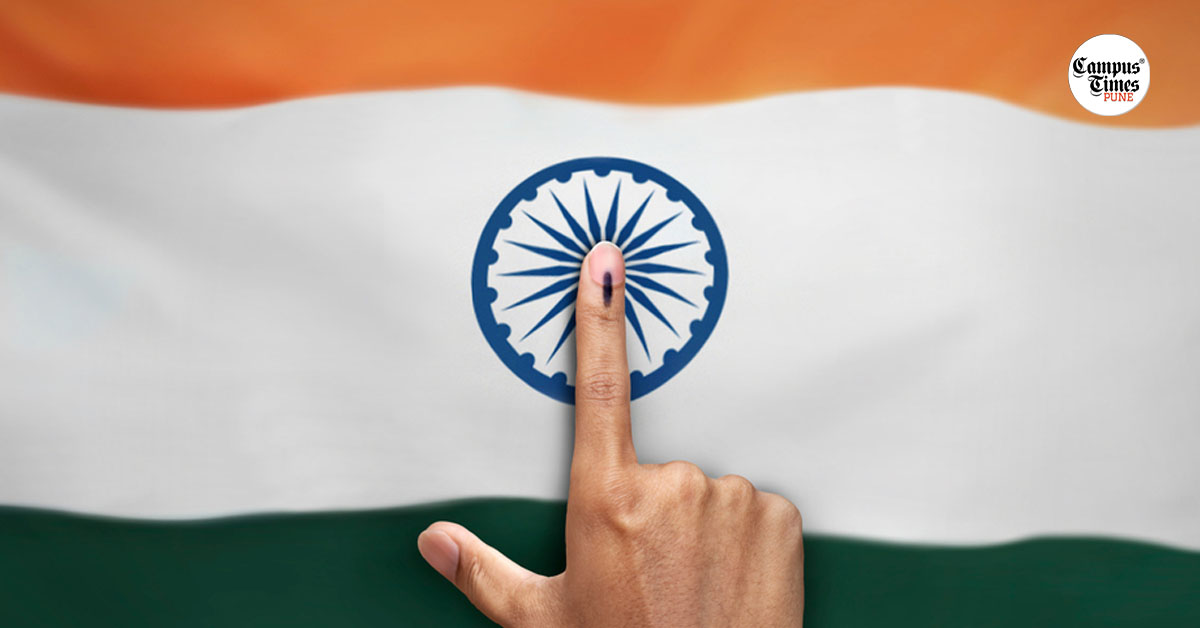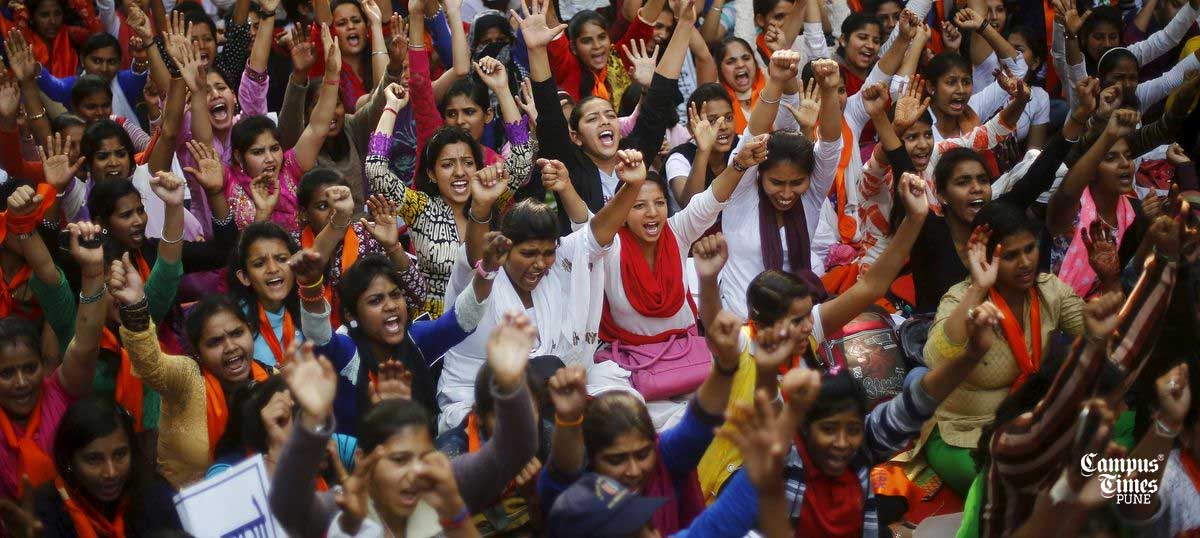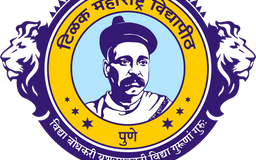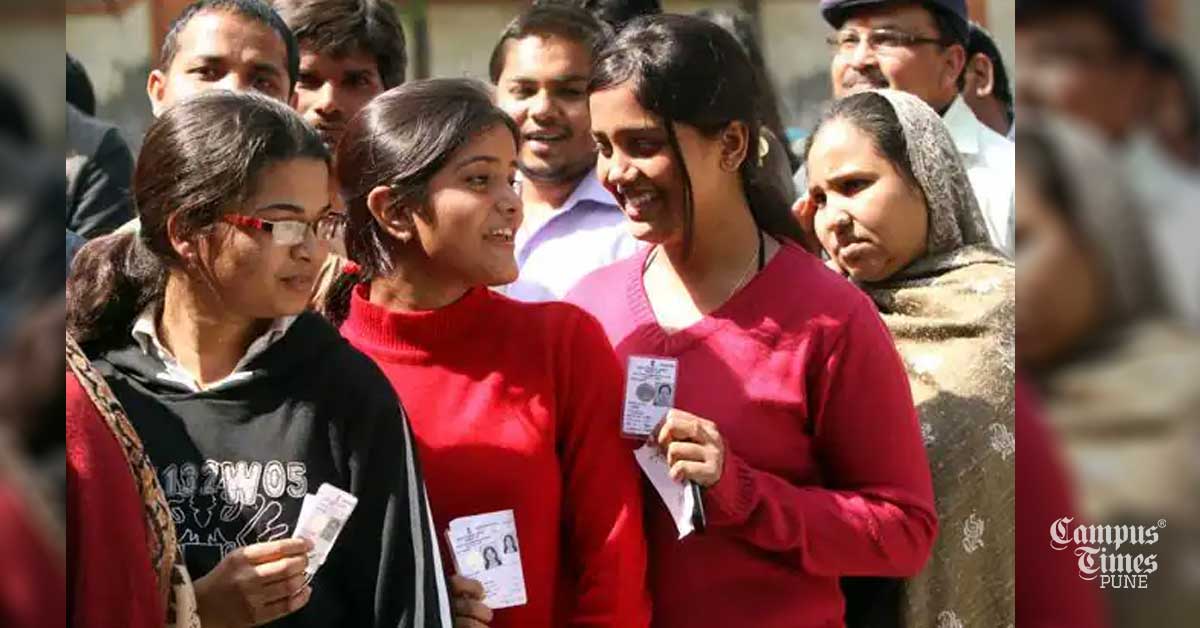As India gears up for another round of democratic exercise with the upcoming Lok Sabha elections in 2024, anticipation and fervour are felt across the nation. Beyond the political realm, the ripple effects of the elections are felt throughout society, and one crucial demographic poised to be influenced significantly is college students. The new set of voters! With their awareness, energy, and them being fresh youth, students are not just passive observers but now for many of them are first-time active participants in shaping the future of the entire country.
In this article, we explore the multifaceted impact of Lok Sabha elections on college students in India and avenues through which they can engage in the beautiful electoral process that the world’s largest democracy possesses.

College campuses often serve as breeding grounds for political discourse, activism, and ideological ferment. The upcoming Lok Sabha elections 2024 present an excellent moment for students to voice their concerns, aspirations, and demands. Problems such as education reforms, employment opportunities, environmental sustainability, social justice, and economic policies matter a lot to the student community and consequently, the outcome of elections holds very significant implication for their future prospects and the kind of society they envision.

The elections have tons and tons of impact on this generation, many of whom are college students and will be the most greatly affected as these very people will enter India’s workforce, become taxpayers, and play a pivotal role in shaping this country’s future.
We have a look at some of the most important ways in which the current Lok Sabha elections 2024 will impact the students:
1. Educational Policies:
The government which will come into power after the election shapes educational policies that directly impact students. Debates on funding allocation, curriculum changes, scholarship programs, and institutional autonomy are paramount to students and can greatly influence their academic journey and what happens afterward.
2. Employment Opportunities:
Job creation, skill development initiatives, and economic policies affect students’ employability post-graduation. The outcome of elections can determine the direction of these policies, thereby shaping students’ career prospects.
3. Social and Environmental Issues:
Students are often at the forefront of movements advocating for social justice and environmental conservation. Elections offer a platform to address concerns such as gender equality, religious reforms, climate change, and sustainable development.
4. Youth Empowerment:
The representation of youth in governance and policymaking is crucial for a vibrant democracy. Elections provide an opportunity for students to demand greater representation and participation in decision-making processes.
Now that you all are thorough with exactly what kind of impacts will actually affect you after the election, we will now look at the various avenues of how you. YES, you can take part in this decision-making process. A word of warning though, whatever idea, whichever party you will vouch for in these elections will affect and change the lives of the 1.42 billion other Indians too.
So I think now you have an idea of how significant your place in this whole process is :
1. Voter Registration Drives:
Many voter registration drives are happening or have happened in your college for making your voter ID card, take part in them and encourage others too as this would ensure maximum participation in the electoral process which begins with empowering students to exercise their fundamental right to vote. Be a part of the change that you want to see!
2. Awareness Campaigns:
Workshops, seminars, and panel discussions can be organized to educate students about the electoral process, the significance of their vote, and the platforms of different political parties. Such initiatives foster political literacy and critical thinking among students.
3. Volunteer Opportunities:
Students can actively participate in Lok Sabha election campaigns by their respective parties of choice in volunteering for voter outreach, social media mobilization, and logistical/economic support. Engaging in campaign activities provides firsthand experience of the electoral process and cultivates real-life leadership skills.
4. Student Manifestos:
Student and youth bodies can formulate manifestos outlining their priorities and demands, which can then be presented to political parties and candidates. This exercise empowers students to articulate their collective aspirations and hold elected representatives accountable for what they want.
5. Think beyond Politics:
As a responsible citizen, we should understand that the nation comes before anything, and that includes petty politics and rivalry between the political parties. While competition is good, it should never come in the way of progress & security of any country. As students, you should always focus on progress, while giving equal consideration to historic events.
This all is sounding a bit too easy eh? A lot of challenges hinder the effective participation of students in the electoral process. These include apathy, lack of awareness, logistical constraints, and sometimes the more dangerous ones which are very prevalent in Indian politics even today intimidation or coercion.
Addressing these challenges requires a multi-pronged approach:
1. Education and Outreach:
Continuous efforts must be made to educate students about their rights, responsibilities, and the importance of their participation in the electoral process. Outreach programs should target remote areas and marginalized communities to ensure inclusivity.
2. Technological Integration:
Leveraging technology through online voter registration, electronic voting, and mobile apps for information dissemination can enhance accessibility and convenience for students, especially those studying away from their hometowns.
3. Collaborative Efforts:
Collaboration between educational institutions, civil society organizations, government agencies, and political stakeholders is essential for creating an enabling environment for student engagement in elections. These partnerships can facilitate resource-sharing, capacity-building, and coordinated outreach efforts.
4. Institutional Support:
Colleges and universities should actively support student-led initiatives for electoral engagement by providing logistical assistance, academic credit for participation, and institutional endorsement. Recognizing such efforts fosters a culture of democratic participation within educational institutions.
Now as the world’s largest democracy braces itself for its grand electoral spectacle, the significance of student engagement cannot be overstated. College students represent not just the future but also the present of the nation, and their active involvement in the electoral process is vital for a vibrant and inclusive democracy. By harnessing their energy, idealism, and creativity, students can catalyse positive change and contribute to shaping a more equitable and prosperous society. As stakeholders in this grand old democratic process, it is incumbent upon students to seize the opportunity and make their voices heard in the corridors of power.
The upcoming Lok Sabha elections in 2024 present a watershed moment for students to assert their agency, demand accountability, and co-create a future that reflects their aspirations and values.
Aryan is your average go-to guy for everything tech, games and PHYSICS! Always looking for somehing niche to do, he never gets tired of chasing what nobody else is. Currently he’s pursuing ICE at AISSMS IoIT and coincidentally while he does knows how to speak in more than 3 languages all he can say these days is “amcha kadhe plane aahe”.




Exciting times ahead as Lok Sabha elections 2024 approach! 🇮🇳 College students, get ready to be active participants in shaping India’s future. From educational policies to employment opportunities, your voice matters more than ever! #LokSabhaElections2024 #StudentPower